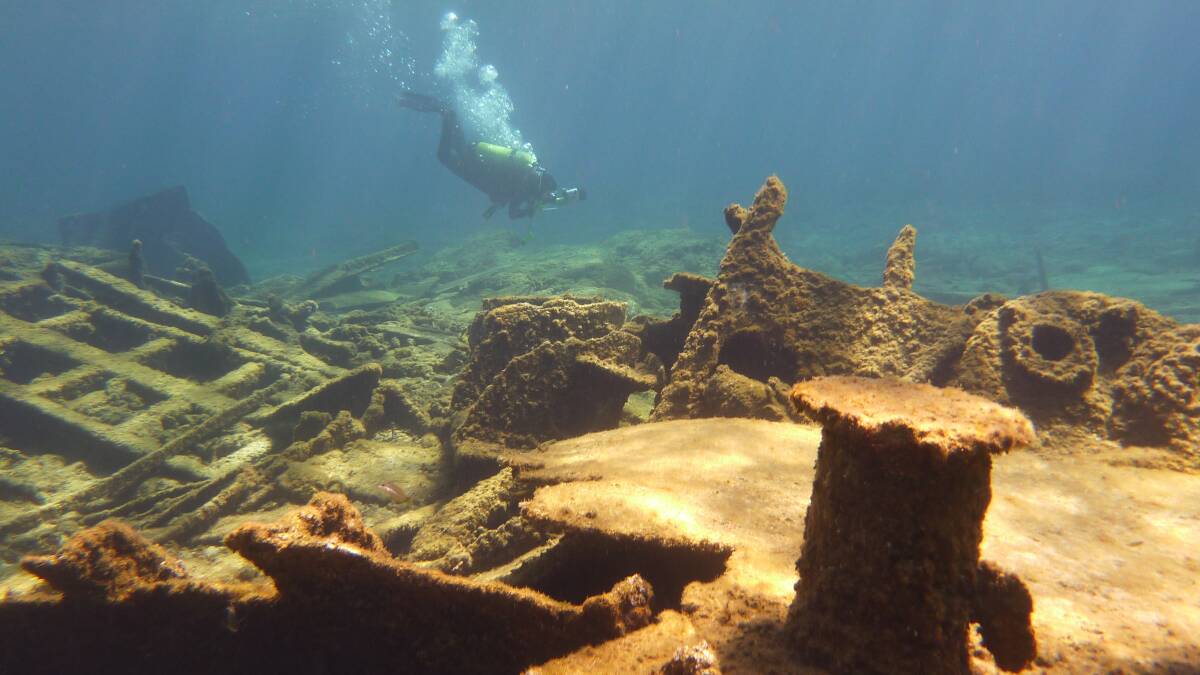
ARCHAEOLOGIST, author and lecturer Michael James Bendon is ready to share his fascinating discovery with the people of the Shoalhaven.
Subscribe now for unlimited access.
or signup to continue reading
His story might sound worthy of Indiana Jones but Dr Bendon’s discovery adds a rich, historical element to Australia and New Zealand’s involvement in World War II.
Five-and-a-half years ago, while excavating the first Minoan shipwreck to be discovered in an ancient seaport of Phalasarna in north-west Crete, he decided to take a dip in the ocean during his lunch break.
“I swam over a wreck,” he said.
“I was very curious about it and wanted to find out more but there was very little information so I decided to start my research.
“I found some very interesting stories.”
It was a 52-metre British World War II shipwreck in just five metres of water, its identity unknown.
He soon discovered a second nameless 46-metre ship lying further out.
Dr Bendon said three further wrecks have since been located.
“Through my research I found out they were involved in the Mediterranean campaigns of 1941,” Dr Bendon said.
“They were secretly developed vessels that not only played a critical role in supporting Anzac troops in North Africa and Crete but saved thousands of lives – evacuating Australian and New Zealand troops who helped the Greeks defend Crete from invading Germans.
“These vessels could carry up to 900 people at a time.”
Until the publication of his recent book, The Forgotten Flotilla, virtually nothing was known of these craft and the work they carried out.
Dr Bendon said the first ship he found had carried wounded New Zealand soldiers.
“I managed to find the captain in England and interviewed him for my book,” he said.
“He was 95 years old but his recollections were vivid and feature throughout the book, which gives it a personal touch.
“[The vessels] are still listed as lost by the British. My next step is to change that.
“If it weren’t for these vessels, thousands would have been left behind.”
After years of research, Dr Bendon finally published at the end of last year.
“I thought it was about time I started to tell people.”
Small enough to manoeuvre around Crete, the vessels did not fall victim to the rugged, rocky coastline but to German bombs.
“They tied them up during the day when unfortunately they were hit,” he said.
“Luckily there were no casualties because the crew were all ashore waiting for night before heading off.
“We hear about the big boats that took men to safety, but they couldn’t get anywhere near the shore – that’s where these vessels came in.
“The most important thing for me is to get this out to people.”
Dr Bendon has many interesting stories to share, having worked on numerous sites around the Mediterranean and Europe including Israel, Portugal, Germany and Greece.
Debby Rayner from Nowra RSL sub-branch said everyone was welcome to listen to Dr Bendon’s tale.
“The more the merrier.”
Dr Bendon will share his Forgotten Flotilla discovery at the Nowra RSL Hall in Junction Street, Nowra on Saturday, October 11 from 2pm.
Afternoon tea will be provided.
Please confirm attendance with Debby Rayner for catering purposes on 0413 787 858.
For more information on Dr Bendon’s discovery, visit www.forgottenflotilla.com.

